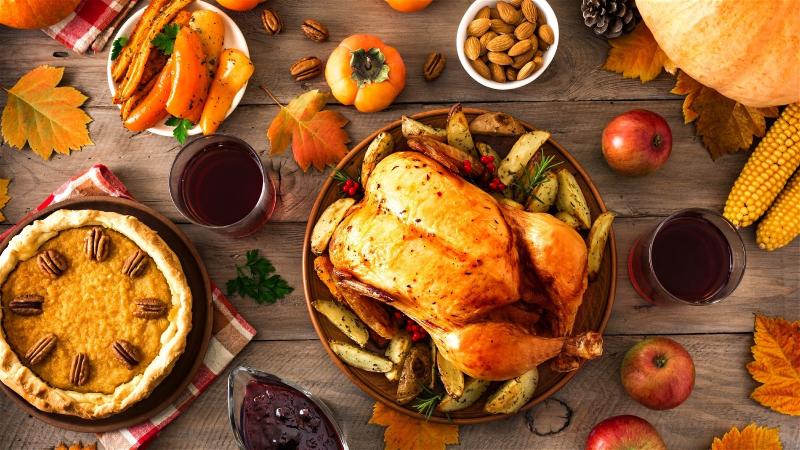Thanksgiving and its focus on food can be a difficult time if you struggle with your relationship with food or your relationship with your body. We have six tips to help you navigate diet culture this Thanksgiving!

by Lydia Coulson
Thursday, November 17, 2022
Eat breakfast – If your family has a huge meal in the afternoon or evening, still take some time to eat breakfast in the morning. It does not have to be huge or fancy, just enough to fuel you through a big day of cooking, catching up with family or friends, and watching football.
Fit Check – For some families, what you wear to the Thanksgiving meal is a big deal. Putting a specific outfit for Thanksgiving together can be really fun! What is not fun, however, is spending the whole day adjusting your clothes or checking how you look in every reflective surface. If you know you will feel self-conscious in a tight outfit after eating a big meal, pick something that will not force you to focus heavily on your body and how it looks. The most important thing is that it is comfortable – both in how it feels on your body and in how you feel about it mentally.
Set an Example – If you will be spending time with younger cousins or family members, try to set an example in the way you talk to them. Instead of saying “wow you’re so big since I saw you last!” focus on something not related to their size. In fact, focusing on their character, attitude, or skills is ideal. Here are some examples to use with the kids in your life:
“I like the color of your dress and I bet it keeps you comfortable”
“I saw you helping your mom earlier in the kitchen, it looked like you were having fun!”
“It has been so long since I saw you! I bet you can run really fast now!”
Change Topics – There may be family members that make comments about needing to “work off” or “earn” their Thanksgiving meal or openly discuss their newest diet. When these topics come up, be prepared to change the subject or, if you feel comfortable, pushing back against the diet talk. Try preparing some easy phrases ahead of time – here are few examples:
“I really like to focus on what I’m grateful for, which for me includes my body.”
“Can we talk about something else?”
Practice Mindfulness – This Thanksgiving and holiday season, try to fully engage in your experiences. Eat all of the foods you want to and let yourself enjoy the smells and flavors of Thanksgiving! Avoid eating past your hunger level – you can always go back for seconds. If you notice any guilt or judgmental thoughts, pause and reflect on why you might be feeling that way.
Find a support System – Spending time with family can cause a mix of emotions. You may not be the same person you were before college, and that is okay! However, it can be hard for family members to adjust to. If spending time with family around the holidays is difficult, find a support system that works for you. This could be a sibling, favorite cousin to hide with in the basement, facetiming your best friend, or knowing you have an appointment with your therapist when you return to campus.
Wondering where you can find help? Counseling and Psychological Services (CAPS) offers a variety of support services around disordered eating and body acceptance.